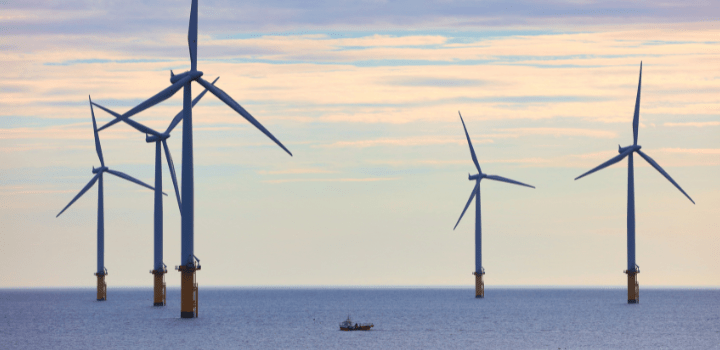This post is by Rachel Solomon Williams, executive director at Aldersgate Group
At a Green Alliance event in March 2023, Ed Miliband (then shadow secretary of state for energy security and net zero) remarked that decarbonising the grid is a challenge equivalent to developing a Covid vaccine, and one that needed to be approached in the same way. He is right that reaching the Government’s 2030 grid decarbonisation target will be a huge challenge, and that addressing the multiple factors involved in delivering such a rapid and complex change will need a level of focus equivalent to the vaccine taskforce.
This theory is driving the new government’s mission-led approach, ensuring that high priorities are given both laser focus and prime ministerial oversight. We have already seen this focus on delivery in action, with Chris Stark, former chief executive of the Climate Change Committee, selected to head up the “clean power by 2030” mission. It was reinforced by the King’s Speech on 17 July, which included the Planning and Infrastructure Bill.
The planning system can deliver on decarbonisation There are lessons to be learnt from the vaccine roll out, including the recognition that this is not a purely mechanistic challenge, but is about hearts and minds as well. To hold back Covid, not only did we need an effective vaccine, but people also had to understand why it was important and put themselves forward for vaccination. A procedural approach to the problem wouldn’t have worked. Developing a vaccine was necessary but not sufficient: public buy-in was crucial too. The same is true for the new grid and renewable infrastructure necessary to meet the 2030 government target.
This is why three organisations, CPRE, the countryside charity, the Aldersgate Group and Renewable UK, united in support for the decarbonisation of our energy infrastructure, have come together to think about how to support that goal through the planning system. We are focusing in particular on how the planning system can facilitate the decarbonisation of energy generation and provision of grid infrastructure while maintaining public support; communities should be offered meaningful input to the process, while landscapes and nature are protected.
In publishing our interim findings we are clear that, as climate policies are rolled out which affect our lives more directly, it is vital that people from all sectors of society can shape those policies and how they are implemented. This will help to develop the most workable options and maintain the broad public support for delivering net zero. In polling released alongside our report, 64 per cent of those polled support investment in renewable energy, and 60 per cent believe their local MP should advocate for further renewable energy development.
We need a co-ordinated approach to net zero targets In addition, decarbonising our electricity system is not the only target the government must reach in 2030. They have also inherited a vital commitment to address the dire state of nature by stopping the decline in species abundance and ensuring 30 per cent of land and sea is protected by that year. We cannot meet these targets (and others, notably on housing) by addressing them in isolation.
The interim findings of our research show that the planning system for energy infrastructure needs increased strategic direction, stronger resourcing and improved engagement to deliver net zero and protect nature. We spoke at length to those who use the Nationally Significant Infrastructure Projects (NSIP) element of the planning system – developers, local authorities and community and environmental groups – to examine barriers and pinch points. In general, we found that the NSIP works, but its efficiency could be increased and uncertainty reduced; engagement of stakeholders, experts and communities is crucial; and there is a lack of capacity right through the system. We are now diving deeper into these issues and potential solutions to develop final recommendations, which we will share in the autumn.
New ministers have already shown that they broadly understand these issues. They have also made clear their view that accelerating the energy transition is crucial and taking decisive action offers an economic opportunity that they are going to embrace, this provides welcome consistency of messaging. If we want to decarbonise our electricity generation as effectively as we vaccinated the population against Covid, we need to consider how it interacts with, and can be delivered alongside, other targets as well as maximising engagement with the mission through stakeholders and communities.
Read the Aldersgate Group, CPRE and Renewable UK report here.
Discover more from Inside track
Subscribe to get the latest posts sent to your email.
